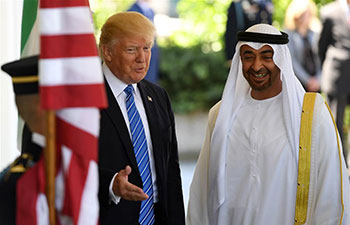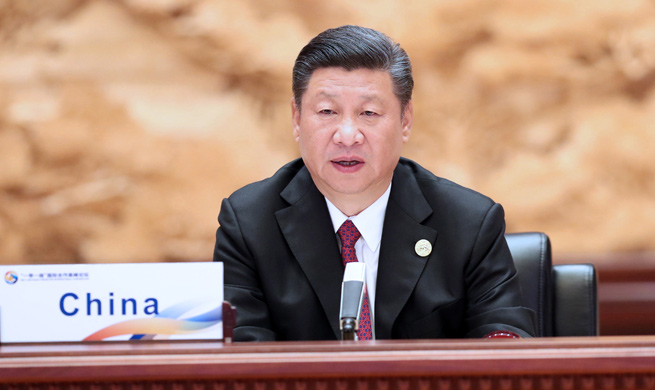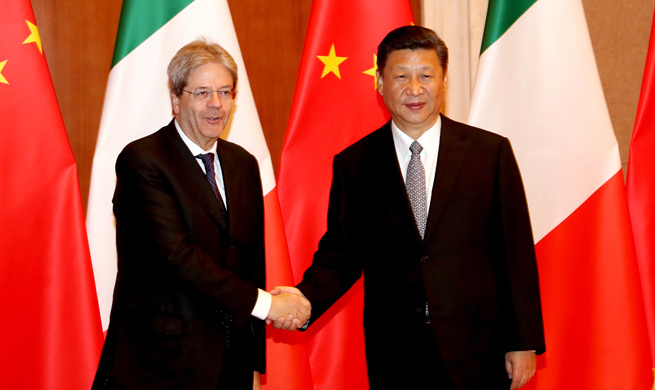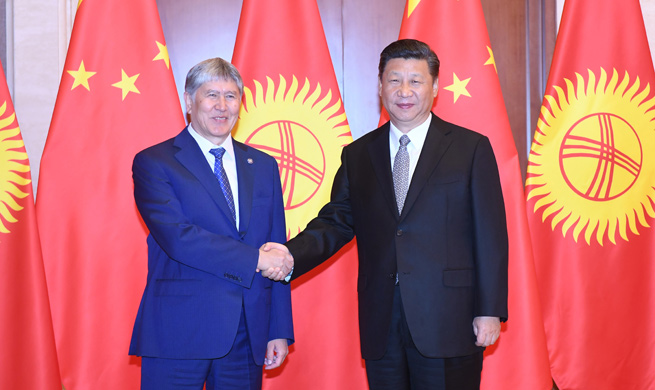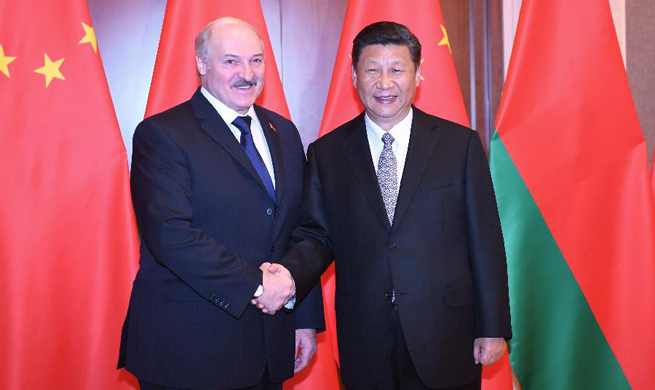by Peter Mertz
DENVER, the United States, May 15 (Xinhua) -- A senior U.S. professor spoke highly of the China-proposed Belt and Road Initiative, praising it as a revolutionary concept in promoting global connectivity.
"This could be a turning point in world history," retired Denver history professor John Yee told Xinhua in an interview.
Yee, 96, the first professor to teach Chinese history in America's huge Rocky Mountain region, compares the Belt and Road Initiative to the Internet.
"This is a revolutionary concept and has the potential to change Asia beyond what the Internet was to global connectivity," Yee said.
The Belt and Road Initiative, proposed by Chinese President Xi Jinping in 2013, aims to build a trade and infrastructure network connecting Asia with Europe and Africa along the ancient Silk Road and maritime trading routes, with a goal to bring beneficial economic outcomes for every nation involved.
Xi described the Silk Road spirit as "a great heritage of human civilization" with peace and cooperation, openness and inclusiveness, mutual learning and mutual benefit at its core.
Yee contends that Xi's strategy reveals China's respect for history and the past by remembering a "2,000-year-old truth" and designing a revolutionary, 21st century solution.
Born in Zhaotong of China's Yunnan Province, Yee has seen first-hand a remarkable amount of world history, and taught Asian history in the United States for 30 years respectively at the University of Colorado, the University of Denver and Metro State University.
"Right about the time of the birth of Jesus Christ, the Han Dynasty expanded trade routes from the Korean Peninsula to the shores of the Mediterranean Sea," said Yee, recounting the history of the Silk Road.
"The Silk Road is historically significant and connected many parts of Asia -- from spice trade with India and Saudi Arabia to silk trade with Egyptian, Greek and Roman civilizations," said Yee.
"It could be argued that the Silk Road represents the first civilized exchanges between diverse cultures in the world, especially between East and West," Yee said.
Yee noted that trade between China and the West dates back to 1,000 BC.
"They found Chinese silk in Egyptian tombs and in Germany dating back to 700 BC," said Yee, adding the Belt and Road Initiative is "a revival of a successful route and notion that people can exchange goods and ideas in a mutually-beneficial way."
"So, if you think about it, trade between Europe and China has been going on for almost 3,000 years. In terms of human civilization this is astounding," he said.









